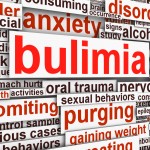
The incidence of eating disorders (EDs) in both men and women has increase over the past. Decade. Tooth erosion (TE) where there is a progressive and irreversible loss of tooth substance as a result of a chemical process without bacterial involvement is considered to be an oral manifestation on EDs associated with eating disorders.
The aim of this review was to assess the effect of eating disorders on tooth erosion.
Methods
Searches were conducted in Medline, Web of Science, Cochrane Library, Clinical trials.gov, Current controlled trials, NICE, Lilacs and the Brazilian Library of Dentistry (BBO) databases. Two reviewers independently selected, data abstracted and quality assessed studies, The Newcastle-Ottawa Scale was used to assess quality.
Results
- 23 studies involving 1306 patients were included (13 case-control and 10 cross-sectional)
- Sample sizes varied from 20 – 244 patients.
- Meta-analysis (9 case-controlled studies) found patients with EDs had more risk of tooth erosion (OR = 12.4, 95%CI = 4.1-37.5).
- Meta-analysis (3 cross sectional studies) found patients with EDs who self-induced vomiting had more risk of tooth erosion than those patients who did not self-induce vomiting (OR = 19.6, 95%CI = 5.6-68.8)
Conclusions
The authors concluded
Purging practices seem to increase the risk of TE. Nevertheless, there is a significant lack of scientific evidence to fulfill the basic criteria of causation between both conditions. Moreover, the present systematic review does reveal that to date there is no solid evidence in support of the postulated causal role of EDs in the occurrence of TE.
Commentary
In the discussion the authors highlight a number of quality issues in relation to the studies. For example only two of the included studies reported adjusting the analysis for confounders. Some of the case reports did not describe the controls adequately and some of the cross sectional studies did not describe how erosion was assessed or relied on self-reporting. Despite the large odds ratios reported the concerns over the quality of the original studies justify as cautious interpretation of this evidence.
Links

Hi @beatED Interested in yr feedback on this blog by @TheDentalElf Tooth erosion associated with #EatingDisorders http://t.co/nVWlfG6YYY
Don’t miss – Tooth erosion: associated with eating disorders http://t.co/N6tlOALiiG
[…] Dental Elf – 11th Nov 2014 – Tooth erosion: review suggests an association with eating d… […]
[…] Dental Elf – 11th Nov 2014 – Tooth erosion: review suggests an association with eating d… […]
[…] Dental Elf – 11th Nov 2014 – Tooth erosion: review suggests an association with eating disor… […]